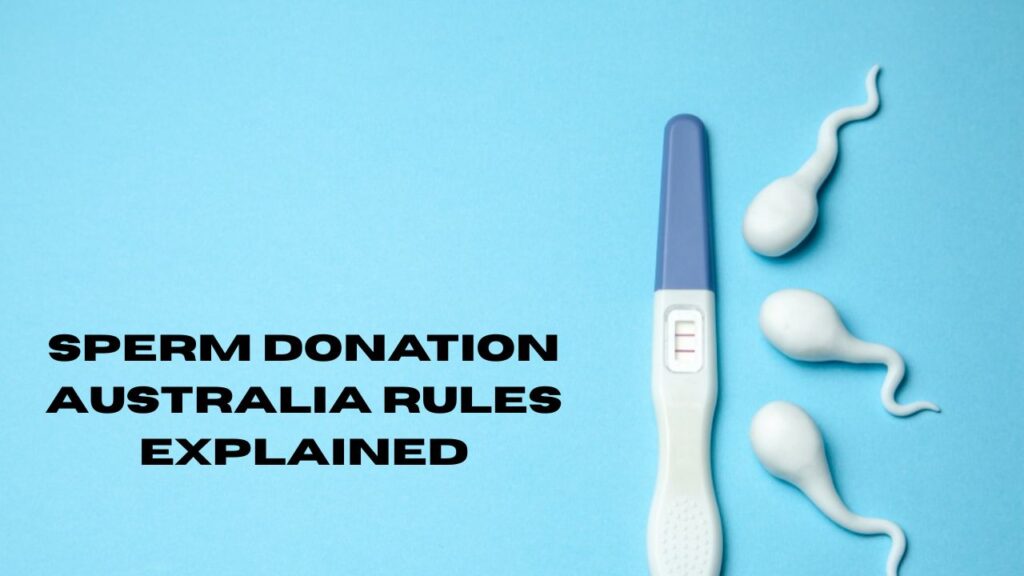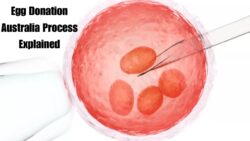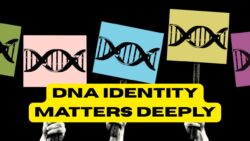Sperm Donation in Australia – Sperm donation in Australia is a deeply personal and socially significant topic that combines medical science, ethics, and emotional understanding. With the rise of assisted reproductive technologies, more Australian families are turning to donor conception to fulfil their dreams of parenthood. However, the process involves strict legal guidelines, ethical debates, and emotional implications for donors, recipients, and donor-conceived children. This article explores the rules, ethical considerations, and emotional impact of sperm donation across Australia, helping readers understand both the practical and human sides of this important issue.

Legal Rules for Sperm Donation in Australia
Australia has one of the most transparent and regulated systems for sperm donation in the world. Under Australian law, sperm donation must always be altruistic — meaning donors cannot be paid for their sperm, though they may be reimbursed for reasonable expenses. Each state and territory, including New South Wales, Victoria, and Queensland, follows strict legislation to ensure donor identity disclosure. Donor anonymity has been banned in most parts of Australia since the early 2000s, allowing donor-conceived individuals to access identifying information about their biological donors once they reach 18 years of age. These laws aim to prioritise the rights and identity of donor-conceived people above all.
Ethical Considerations Around Sperm Donation for Australian Citizens
The ethics of sperm donation in Australia revolve around balancing the rights of the donor, the recipient parents, and the child. Ethical guidelines, issued by the National Health and Medical Research Council (NHMRC), require that donors provide informed consent and understand that their biological identity may be disclosed in the future. Clinics are also expected to limit the number of families created from one donor to prevent accidental genetic connections. Many Australians believe transparency in donor conception supports emotional wellbeing and promotes trust between all parties involved. However, some ethical debates still arise around donor anonymity and emotional responsibility.
| Aspect | Details in Australia |
|---|---|
| Donation Type | Altruistic (No payment allowed) |
| Donor Identity | Disclosure mandatory in most states |
| Legal Age for Access | 18 years for donor-conceived individuals |
| Regulatory Authority | NHMRC & State Fertility Authorities |
| Maximum Families per Donor | Limited (varies by state, often 5-10) |
| Recipient Screening | Medical and psychological counselling required |
Emotional Impact of Sperm Donation Across Australia
Beyond laws and ethics, sperm donation carries significant emotional consequences for all parties involved. Donors may experience curiosity or emotional attachment toward their biological offspring, while donor-conceived individuals often face questions about identity and belonging. In Australia, counselling services are offered before and after donation to help donors and recipients process these emotions. Many families choose to maintain open communication about the donor’s role from an early age, reducing confusion later in life. This emotionally informed approach reflects Australia’s evolving understanding of family, genetics, and identity in modern society.
Support Networks for Donor-Conceived Australians
Support groups like Donor Conceived Australia and various fertility counselling services across the country play a crucial role in guiding families through the emotional complexities of donor conception. These organisations offer resources, advocacy, and peer connections for donor-conceived individuals and their families. They also encourage ethical reform and education to ensure that donor conception in Australia remains transparent, empathetic, and centered on the wellbeing of the child. Open dialogue, access to records, and emotional support have become key pillars in the Australian approach to assisted reproduction.
Frequently Asked Questions (FAQs)
1. Is sperm donation paid in Australia?
No, sperm donation in Australia is altruistic, meaning donors cannot receive payment but may be reimbursed for reasonable expenses.
2. Can a sperm donor stay anonymous in Australia?
No, donor anonymity is banned in most Australian states, allowing donor-conceived people to access identifying details at age 18.
3. How many families can be created from one donor?
Most states limit one donor to between five and ten families to prevent genetic overlaps in the community.
4. Are counselling sessions mandatory for sperm donation?
Yes, both donors and recipients are required to undergo counselling to understand the emotional and legal aspects of sperm donation.




